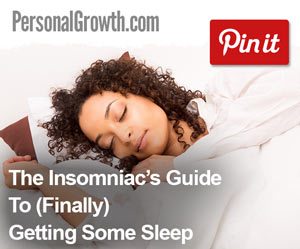

Toss. Turn. Get up. Walk around. Try to sleep again…
If this sounds like your nightly routine for trying to sleep, you aren’t alone. An estimated 50 to 70 million Americans have a sleep or wakefulness disorder that affects their work productivity, reduces their quality of life and heightens their risks for chronic conditions, according to the Centers for Disease Control and Prevention.
While some Americans don’t make time for sleep, others do — but still, they can’t sleep.
This condition is known as insomnia, and it’s more than being unable to sleep for long periods at night. Instead, it’s poor-quality sleep, difficulty going to sleep, difficulty staying asleep or sleep that requires taking medications or even drinking alcohol to achieve.
If you can’t sleep, it may be time to try some new (and healthier) approaches, using your body’s signals to go to sleep.
Get Your Worries Out
Stress and anxiety are two of the leading reasons why people have difficulty sleeping.
Instead of spending hours tossing and turning, pretending you aren’t worried about anything, take a 15-minute time before going to sleep to actually get your worries out.
The right time for this is perhaps after you get done with work or school. Block out 15 minutes for designated worry time where you write things down in a journal, type them out, say them out loud — or whatever will help you get your thoughts out.
Once you’ve done this, let it go for the rest of the evening so you can sleep better.
Roll Your Eyes
The simple gesture of rolling your eyes three times in one direction can stimulate the body to produce a hormone known as melanin, which encourages sleep. When you sleep, your body makes rapid eye movements. By continually rolling your eyes, you just might be able to sleep better.
Tell Yourself You Can’t
While negative thinking usually isn’t advisable, sometimes the opposite is true when you’re trying to go to sleep. Known as the “sleep paradox,” challenging yourself not to sleep may actually trigger your body to sleep.
Go a step further by trying to keep your eyes open and repeating a mantra to yourself, such as “I will not go to sleep.” Your brain may interpret these messages as signs you want to sleep and make you sleep instead.
Evaluate Your Lighting
Dim lighting can trigger your brain’s release of chemicals to help you sleep.
You can start dimming your lighting as early as one to two hours before you go to sleep, since it’s seems as though your body may take more time to get to sleep.About two hours before you sleep, consider dimming your lights until you gradually get to a dark or dim lighting scheme. You can also change out your existing lightbulbs to soft or warm types, which will help to soothe you throughout the day.
Smell Your Way to a Better Night’s Sleep
Aromatherapy is another way to reduce stress and trigger your brain to relax enough to go to sleep. You can purchase an essential oil to smell before sleeping, place a few drops of essential oil on a handkerchief and place under your pillowcase or spray a spray placed on your pillow at night to promote sleep.
Scents known to promote sleep help include lavender, chamomile, jasmine, and vanilla. You could also try brewing chamomile tea and sipping on it pre-sleep.
Kick Into Gear
While strenuous physical activity before bed is decidedly a no-no, an exception can be a few leg lifts before bed. Squats and lunges can also do the trick — whatever diverts blood flow away from your brain and to your legs. You’re not trying to build muscle here. Instead, you are attempting to relieve some stress and get the body ready for bed.

This specialist may be able to help determine if there are physiological problems — such as a blocked airway when you sleep — that are keeping you from sleeping well.

